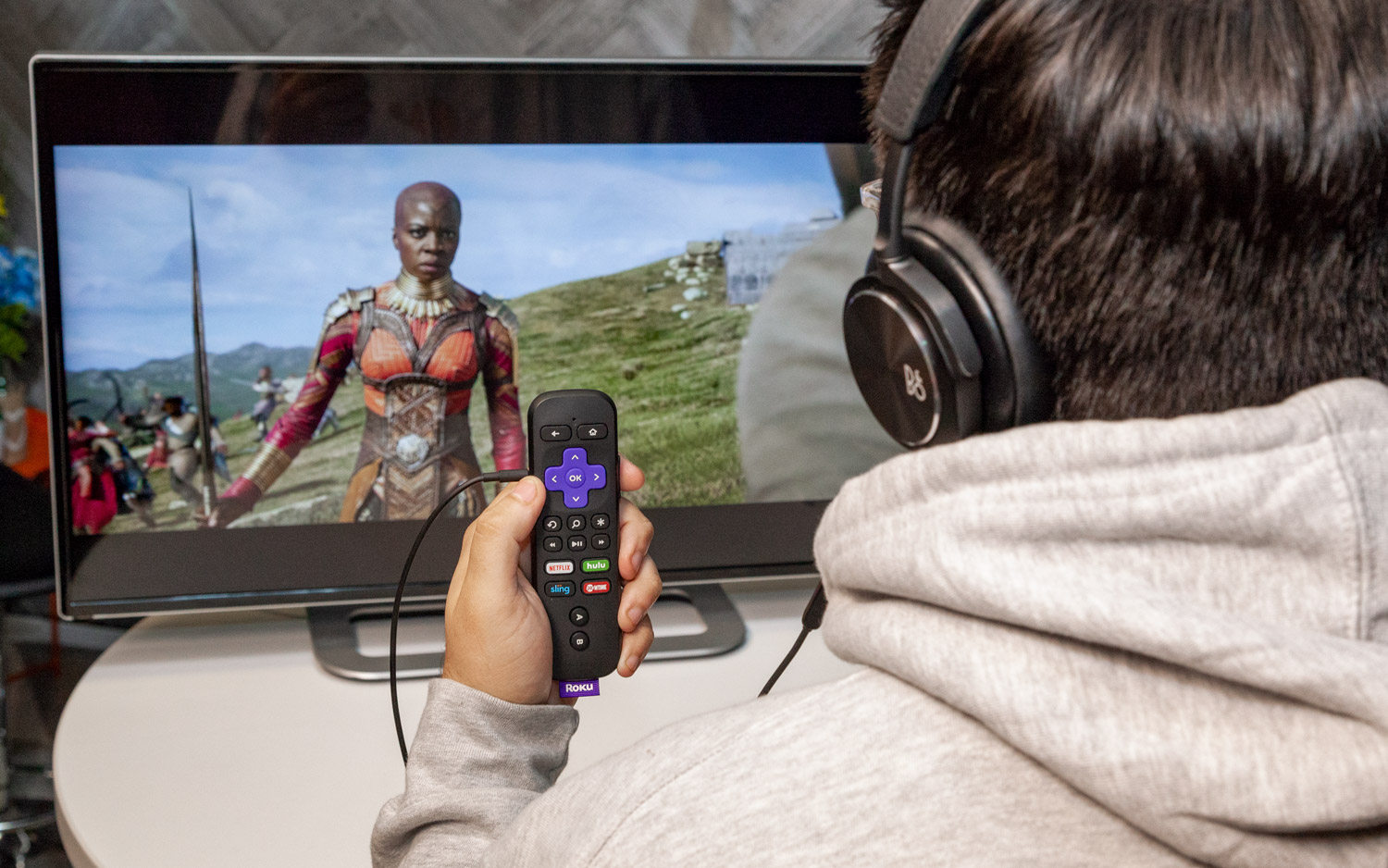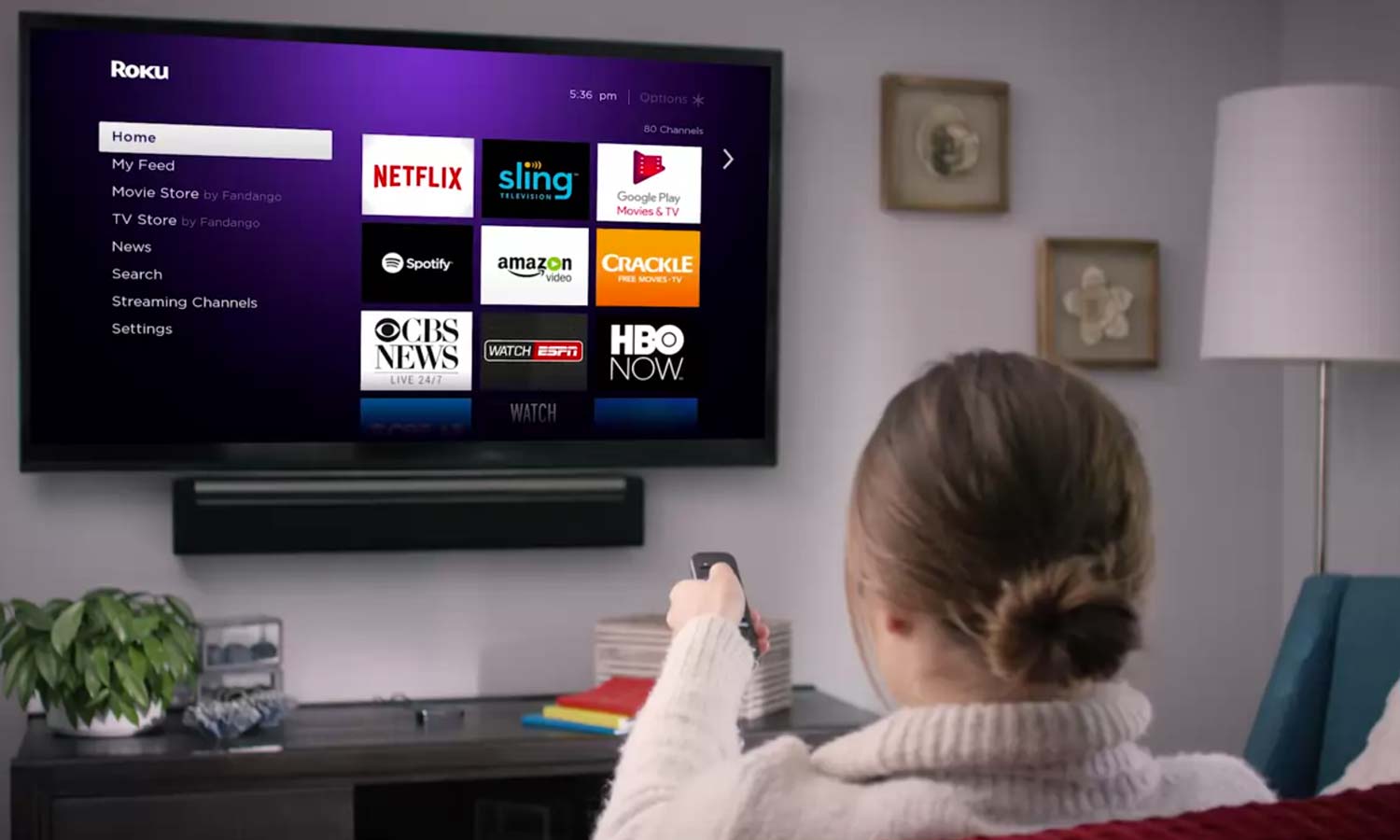The One Roku Feature You Need to Know
This Roku feature will keep families from fighting and couples from bickering, and it works on a ton of devices.
Here at Tom’s Guide our expert editors are committed to bringing you the best news, reviews and guides to help you stay informed and ahead of the curve!
You are now subscribed
Your newsletter sign-up was successful
Want to add more newsletters?

Daily (Mon-Sun)
Tom's Guide Daily
Sign up to get the latest updates on all of your favorite content! From cutting-edge tech news and the hottest streaming buzz to unbeatable deals on the best products and in-depth reviews, we’ve got you covered.

Weekly on Thursday
Tom's AI Guide
Be AI savvy with your weekly newsletter summing up all the biggest AI news you need to know. Plus, analysis from our AI editor and tips on how to use the latest AI tools!

Weekly on Friday
Tom's iGuide
Unlock the vast world of Apple news straight to your inbox. With coverage on everything from exciting product launches to essential software updates, this is your go-to source for the latest updates on all the best Apple content.

Weekly on Monday
Tom's Streaming Guide
Our weekly newsletter is expertly crafted to immerse you in the world of streaming. Stay updated on the latest releases and our top recommendations across your favorite streaming platforms.
Join the club
Get full access to premium articles, exclusive features and a growing list of member rewards.
Late one recent evening, I was trying to finish watching Black Panther again — streaming on Netflix on my Roku — but I almost had to stop. As the film got louder and louder, as Killmonger and T'Challa dueled and the Wakandan tribes waged war, I realized that I was risking my own battle by angering my roommates who were already trying to sleep.

In that moment, though, after pausing the movie with my Roku remote, I noticed its headphone jack, and remembered one of the best features on any Roku device. It's called Private Listening, and it allows you to pipe the audio from your Roku to the Roku app on your smartphone (Google Play and iOS) or some Roku remotes.
MORE: The Best Roku Channels - Movies, TV, Music, Kids, Sports
You don't need to be a night owl to see the potential here. Private Listening can help you be more considerate in plenty of situations in which programming doesn't need to be shared, from parents tired of hearing their kids' favorite shows to partners who don't follow the same sports or reality show.
After I finished the movie, I marveled at this trick that I'd heard about months ago but had let lie dormant since. In addition to accessing Private Listening on all modern Roku devices via the Roku app (just tap on the headphones icon), you can use the feature on the Roku Enhanced Voice Remote (for the Roku 4, Roku Premiere, Premiere+ and Roku Ultra) and the Roku Gaming Remote (for the Roku 2 and Roku 3).

Last April, Private Listening got even better, with an update that allows up to four mobile devices to connect to the same Roku. This way, groups can share in the same sound while keeping that audio out of the living spaces.
MORE: TCL Roku 49-inch 49S405 Review: A Great 4K TV Under $500
Get instant access to breaking news, the hottest reviews, great deals and helpful tips.
The Roku app has other tricks, by the way. You can not only type usernames, passwords and searches into the on-screen keyboard but also perform voice searches, and send your photos, movies and songs to your TV.
Credit: Tom's Guide

Henry was a managing editor at Tom’s Guide covering streaming media, laptops and all things Apple, reviewing devices and services for the past seven years. Prior to joining Tom's Guide, he reviewed software and hardware for TechRadar Pro, and interviewed artists for Patek Philippe International Magazine. He's also covered the wild world of professional wrestling for Cageside Seats, interviewing athletes and other industry veterans.
 Club Benefits
Club Benefits










